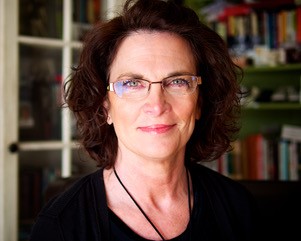GUEST COLUMN
By Reba J. McMellon, M.S., LPC
People who abuse children are not aware or concerned with their own mental health or the mental health of others. That is why abuse of a child is considered a crime and not a mental health issue that can be treated with psychological services alone. Most people who abuse children grossly lack the insight it takes to gain anything from counseling.

Child abuse includes body, mind and spirit. Verbal, sexual, spiritual, mental and physical abuse are sometimes in combination and sometimes separate. All abuse is harmful but sometimes the most harmful are the ones that leave no external mark one can point to in order to “prove” to oneself and others that significant harm has been done.
This column will associate mental health awareness with the prevention of child abuse. What speaks to one person will not speak to another. Being willing to read this article is a sign of psychological healthiness on your part.
• If a child or adult brings up the subject of abuse, don’t interrupt or change the subject.
• Listening and believing goes a long way toward healing.
• Keep the dialogue regarding abuse open among family and friends.
• Teach your children strong boundaries and healthy self-confidence.
• Be a role model for strong boundaries and healthy self-confidence because you can’t teach what you don’t know.
• Provide an atmosphere in your home where an abusive experience can be reported without overreaction or no reaction. Both are harmful.
• Do not hesitate to report abuse to the right authorities.
• Be brave enough to ask for details.
• Use discernment regarding the adults your child or adolescent spends time with.
• Use discernment regarding who you, as an adult, spend time with.
• Watch out for blind trust-whether it’s the chief cook, bottle washer, preacher, teacher, coach, parent, priest, friend, male, female, etc. There is no one stereotype for abusers except they’re good at fooling people.
• When discussing child abuse and mental health issues, don’t let the subject take a political bend. Politics will cloud the issue in a harmful way.
• Abuse issues can and often do come up later in life. It is possible to suppress memories for years. Suppressed memories is a way the body and mind let you know when it’s safe enough to remember.
• False memory syndrome is a term that began with defense attorneys in the 1990’s. While it happens, it is rare.
• Be vigilant about how you talk about abuse issues casually and in public. There is more than likely a survivor in ear shot. Thoughtless comments could push them back into the shadows of shame.
• God is love. Abuse is not.
Don’t walk it alone. Everyone needs a 5 a.m. friend or even at 5 p.m. Someone who listens, believes, encourages, doesn’t change the subject and can help guide you to seek healthy mental health counseling where uncovering leads to recovery allowing you to walk in the wholeness of Christ.
We’re all in this together.
“Be not overcome with evil, but overcome evil with good.” (Romans 12:21)
(Reba J. McMellon, M.S., LPC is a mental health professional and freelance writer with 35 years of experience. She is available for consultation and public speaking. Reba can be reached at rebej@bellsouth.net)
